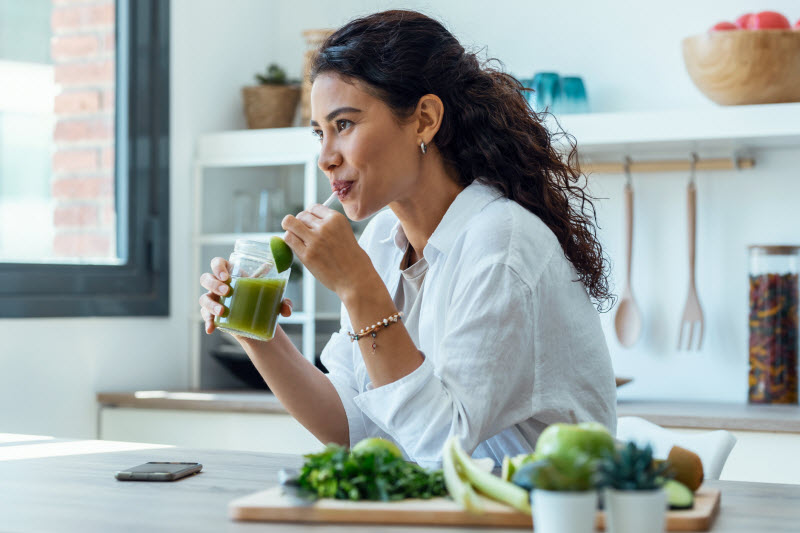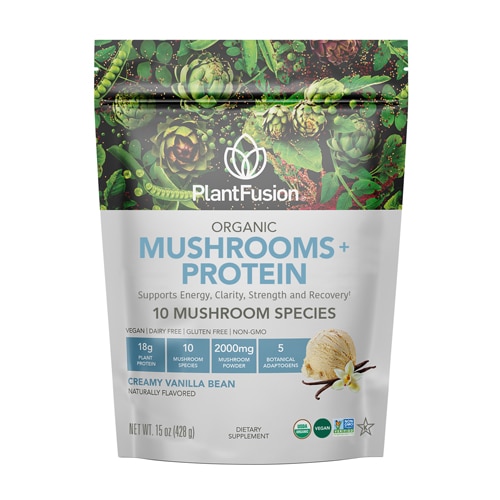[vc_row][vc_column][vc_column_text]If you are a woman looking for more reasons to
eat less meat, a new study should give you motivation to make the switch.
Women who eat higher amounts of plant-based protein reduce their risk of being diagnosed with chronic diseases and experience better overall health as they age, according to a
new study out of Tufts University.

Researchers looked at data from 48,000 women between the years of 1984 and 2016 who were part of Harvard University’s Nurses’ Health Study. The women ranged in age from 38 to 59 and were all in good health when the study began.
After analyzing the data, the researchers found a strong link between eating plant-based protein and reduced risk of health conditions such as:
- Heart disease
- Cancer
- Diabetes
- Cognitive decline
Particularly striking was the fact that eating plant-based proteins appeared to offer greater health benefits than eating animal-based proteins.
For example, the women who consumed higher levels of plant-based proteins had a 46% higher likelihood of aging in a healthy manner compared to those who consumed lower levels of such proteins.
On the other hand, women who ate a diet rich in animal-based proteins saw a 6%
decrease in their likelihood of healthy aging. They were more likely to experience chronic disease and did not gain the improved level of physical function that is typically associated with eating protein.
Compared to consuming animal-based proteins, those who ate plant-based proteins were more likely to experience the following benefits during the aging process:
- Improved heart health
- Lower LDL — or so-called “bad” — cholesterol levels
- Better mental health
In a summary of the study’s findings, Andres Ardisson Korat — a scientist at the Jean Mayer USDA Human Nutrition Research Center on Aging (HNRCA) at Tufts University and lead author of the study — said the researchers found
strong evidence that consuming protein boosts health in older adulthood.
“We also found that the source of protein matters,” Korat said. “Getting the majority of your protein from plant sources at midlife, plus a small amount of animal protein seems to be conducive to good health and good survival to older ages.”
Why you should eat more plant-based proteins
The researchers noted that the plant-based proteins that conferred health benefits in the study were found in many different types of foods, including:
- Fruits
- Vegetables
- Bread
- Beans
- Legumes
- Pasta
They recommend that women should get most of their protein from plant-based sources, while also adding in lower amounts of fish and animal proteins due to their iron and vitamin B12 content.
Sharon Palmer — a California-based registered dietitian nutritionist known as “the plant-powered dietitian” and author of the book “
California Vegan” — is not surprised to learn of the benefits of eating such foods.
“Plant-based protein choices are leaner — lower in saturated fat, cholesterol and calories,” says Palmer, who was not part of the study.
She adds that such proteins provide essential vitamins, minerals and fiber. They also are rich in phytochemicals, which are chemicals found in plants that have been linked to health benefits in humans who consume them.
“This is good for many benefits, including heart health and lower risk of type 2 diabetes and certain types of cancer,” Palmer says.
Fortunately, consuming such plant-based proteins is not a sacrifice for most people, as the foods themselves have great appeal.
“Plant-based eating can be delicious, colorful and nutritious,” Palmer says. “The sky is the limit to the diversity of plant foods you can put on your plate.”
How to get more plant-based protein in your diet
If you want to get more plant-based proteins in your diet, a good goal is to follow the recommendations of the American Institute of Cancer Research.
It suggests that at every meal, you fill at least two-thirds of your plate with plant-based foods, with the remaining one-third of the plate holding either meat or plant-based foods.
Palmer says some of the
best sources of plant-based proteins include:
- Pulses (beans, lentils and peas)
- Soy foods (tofu, tempeh, soymilk and edamame)
- Nuts, seeds and peanuts
Swap out animal protein on the plate at least a few times a week for some of the plant proteins mentioned above or others that you find appealing, Palmer recommends.
“Think a veggie burger instead of a burger, bean tacos instead of beef tacos,
tofu stir fry instead of chicken stir fry, and lentil Bolognese instead of beef Bolognese,” she says.
Palmer also recommends more globally diverse plant-based dishes, such as chana masala, falafel, or Thai eggplant and tofu.
“Make plant proteins the star of the plate,” Palmer says. “Think of a lentil patty with mushroom sauce or grilled seasoned tofu steaks.”
Other options she recommends include:
- Try to make your breakfast a plant-based meal by featuring scrambled tofu wraps, whole grain porridge with fruit and nuts, or bean breakfast burritos.
- Take your favorite meals — such as lasagna, pizza and sandwiches — and swap out the meat for plant protein
Meanwhile, the Mayo Clinic recommends trying traditional recipes from countries such as Greece, India, Italy, Mexico and Asia that contain healthy helpings of plant-based proteins.
Whichever recipes you decide to explore, Palmer suggests taking a gradual approach to adding more plant-based proteins to your diet.
“Start small, such as going plant-based once a week, and then add more days from there,” she says.
[/vc_column_text][/vc_column][/vc_row][vc_row][vc_column][vc_text_separator title="Featured Products" border_width="2"][vc_row_inner equal_height="yes" content_placement="middle" gap="35"][vc_column_inner width="1/3"][vc_single_image image="173061" img_size="full" alignment="center" onclick="custom_link" img_link_target="_blank" css=".vc_custom_1708199319408{padding-right: 7% !important;padding-left: 7% !important;}" link="https://www.vitacost.com/orgain-organic-vegan-keto-10g-plant-based-protein-powder"][/vc_column_inner][vc_column_inner width="1/3"][vc_single_image image="173060" img_size="full" alignment="center" onclick="custom_link" img_link_target="_blank" css=".vc_custom_1708199335597{padding-right: 7% !important;padding-left: 7% !important;}" link="https://www.vitacost.com/garden-of-life-organic-plant-protein-smooth-chocolate-10-servings-1"][/vc_column_inner][vc_column_inner width="1/3"][vc_single_image image="173062" img_size="full" alignment="center" onclick="custom_link" img_link_target="_blank" css=".vc_custom_1708199356261{padding-right: 7% !important;padding-left: 7% !important;}" link="https://www.vitacost.com/balanced-greens-plant-protein"][/vc_column_inner][/vc_row_inner][/vc_column][/vc_row]
 Researchers looked at data from 48,000 women between the years of 1984 and 2016 who were part of Harvard University’s Nurses’ Health Study. The women ranged in age from 38 to 59 and were all in good health when the study began.
After analyzing the data, the researchers found a strong link between eating plant-based protein and reduced risk of health conditions such as:
Researchers looked at data from 48,000 women between the years of 1984 and 2016 who were part of Harvard University’s Nurses’ Health Study. The women ranged in age from 38 to 59 and were all in good health when the study began.
After analyzing the data, the researchers found a strong link between eating plant-based protein and reduced risk of health conditions such as:



